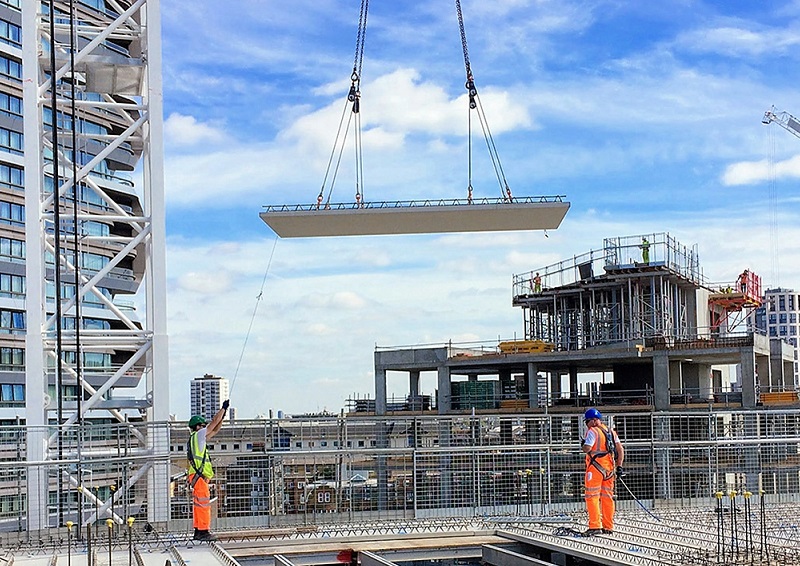 позвонить в :
+86 18681515767
позвонить в :
+86 18681515767
 Эл. адрес :
marketing@jtspeedwork.com
Эл. адрес :
marketing@jtspeedwork.com
 позвонить в :
+86 18681515767
позвонить в :
+86 18681515767
 Эл. адрес :
marketing@jtspeedwork.com
Эл. адрес :
marketing@jtspeedwork.com
Building Smarter Sites: RFID and the Future of Construction Tool Management

As digital transformation accelerates across the construction industry, the management of tool and equipment rentals is entering a new stage of modernization. Traditional practices that rely heavily on manual registration and paper-based records often lead to chaotic tool usage, frequent asset losses, inconsistent maintenance schedules, and inefficient workflows. In large-scale construction projects with long timelines, dispersed personnel, and frequent movement of tools, conventional methods are no longer capable of supporting fine-grained management. RFID (Radio Frequency Identification) technology, powered by increasingly compact and industrial-grade devices such as UHF RFID modules, is becoming a core driver of intelligent tool rental management. It enables transparent equipment sharing, precise location tracking, and full lifecycle visibility across the jobsite.
In traditional workflows, tools such as wrenches, measuring instruments, drills, and other frequently used or high-value devices circulate constantly within and beyond the jobsite. They are easily misplaced, mixed between teams, or inadvertently taken offsite. Manual documentation is time-consuming and prone to human error, which complicates responsibility tracing and disrupts cost allocation. The lack of reliable data also prevents managers from understanding true utilization rates, resulting in redundant purchases of tools that may already exist but cannot be located. Meanwhile, many power tools and precision instruments require periodic calibration or preventive maintenance, yet paper-based logs rarely maintain accuracy, creating potential safety risks. These challenges highlight the need for an automated, traceable asset management solution—precisely the gap that RFID fills.
In an RFID-enabled rental management system, tags are attached or embedded across various equipment categories. Rugged anti-metal tags support heavy-duty tools, while miniature designs serve precision items. Readers are deployed at warehouse gates, jobsite entry points, intelligent tool cabinets, and even on vehicles. In high-traffic zones, companies increasingly use UHF gate readers to automatically detect tools passing through access points, ensuring every borrowing and return action is captured instantly. When workers retrieve tools from a smart cabinet, the system identifies their identity, the type of tools taken, and uploads the data to the platform. Handheld readers further accelerate inventory checks, allowing staff to scan hundreds of tools within seconds.
RFID is also highly effective for loss prevention. When high-value tools exit through a monitored access point without proper authorization, the system triggers an alert. To further strengthen accuracy, some companies deploy directional RFID readers, which identify not only whether a tool passed a checkpoint but also its movement direction—entering or exiting—reducing false alarms and improving real-time visibility. After adopting these systems, many construction firms report a significant decrease in equipment loss. For large organizations operating multiple projects, RFID also enables cross-site equipment sharing. Managers can view tool locations and statuses in real time, identify idle assets, and schedule transfers without guesswork, preventing redundant purchases and improving utilization.
RFID also supports full lifecycle management. The system records usage frequency, working hours, environmental exposure, and load conditions. When a tool reaches a predefined maintenance threshold, it automatically notifies the responsible team. For example, an electric wrench that exceeds its usage count is flagged for service, reducing safety risks. Precision instruments receive timely calibration reminders based on tracked work hours, ensuring construction accuracy. These detailed insights provide companies with a clearer understanding of tool health, depreciation, and maintenance costs, enabling smarter procurement and replacement decisions.
Compared with traditional methods, RFID significantly enhances operational efficiency and reduces costs. Lower loss rates, fewer delays caused by missing tools, and faster returns all contribute to smoother jobsite operations. For financial management, automated logs and usage reports improve project-based cost allocation and reduce billing disputes. Construction companies gain visibility into which tools should be purchased in bulk and which should be rented on demand. Rental providers also benefit from reduced losses, faster inventory turnover, and more transparent service models.
Looking ahead, the integration of AI and IoT technologies will push RFID applications to an even more advanced level. AI algorithms will analyze vibration patterns, usage duration, and temperature variations to predict failures before they happen. Hybrid positioning technologies combining RFID, GPS, and Bluetooth will increase accuracy in large outdoor environments. Smart tool cabinets will evolve into fully autonomous rental nodes capable of automatic restocking and 24-hour self-service retrieval. RFID-generated data will increasingly integrate into digital-twin construction models, offering real-time insights for project planning and risk management.
Overall, RFID is transforming tool rental management from manual oversight to a data-driven, automated ecosystem. Through automatic identification, real-time tracking, intelligent analysis, and transparent records, it enhances efficiency, safety, and cost control across construction operations. As technologies continue evolving, RFID—supported by advanced hardware such as UHF RFID modules, directional RFID readers, and UHF gate readers—will play an even more central role in the future construction landscape.
Авторские права © 2026 Shenzhen Jietong Technology Co.,Ltd. все права защищены.

сеть ipv6 поддерживается